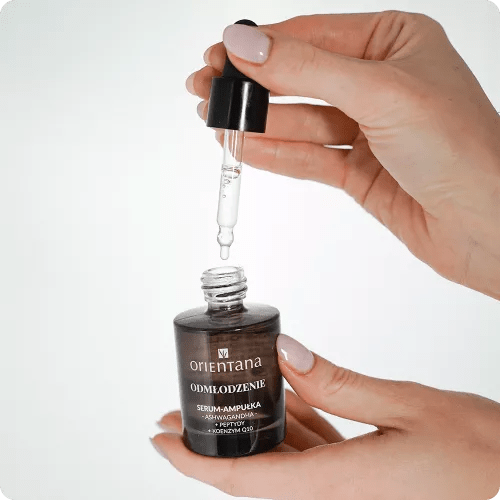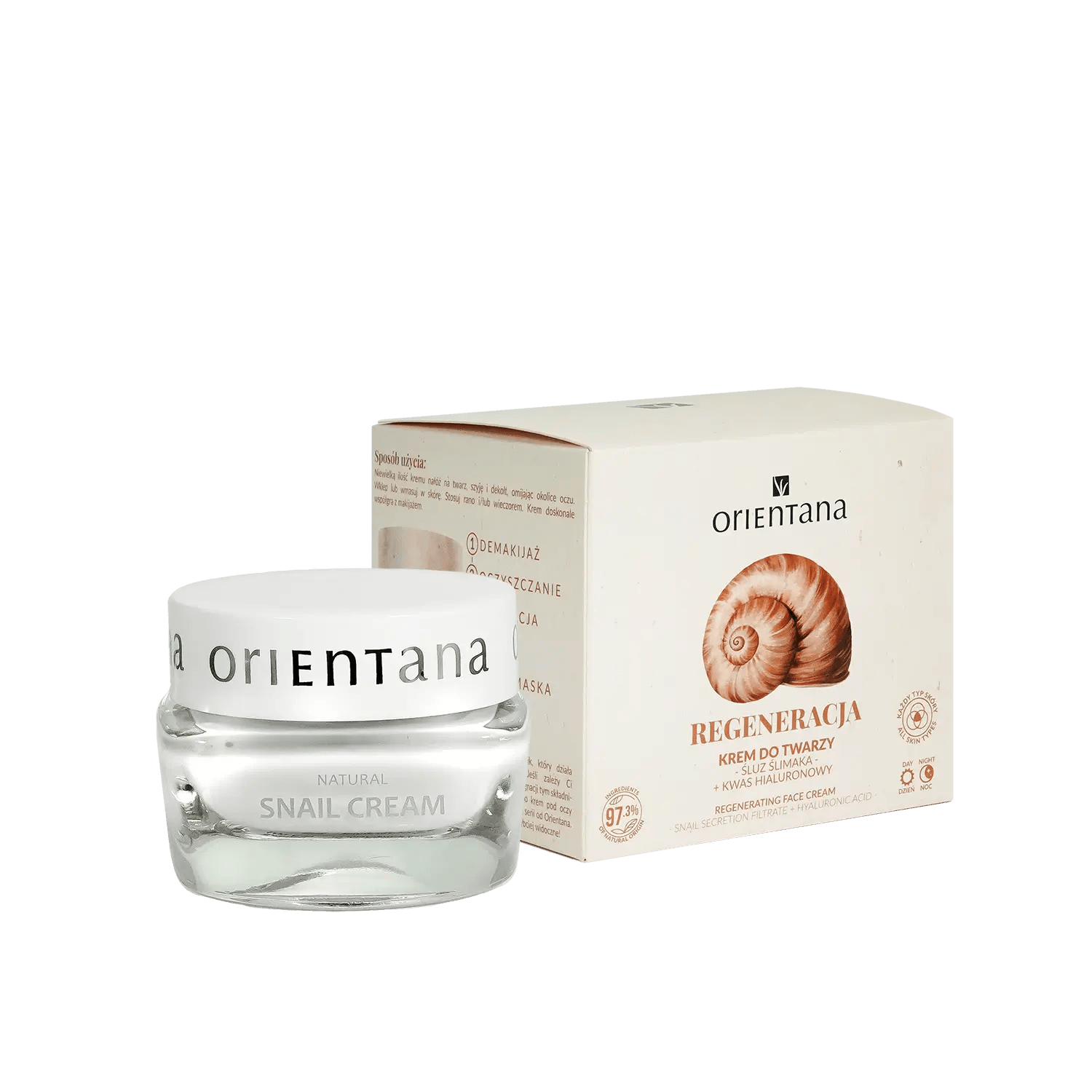What are peptides?
Peptide serum is a cosmetic that contains peptides. Peptides are organic chemical compounds consisting of amino acids connected by peptide bonds. They are the basic building blocks of proteins and perform many important biological functions in living organisms.
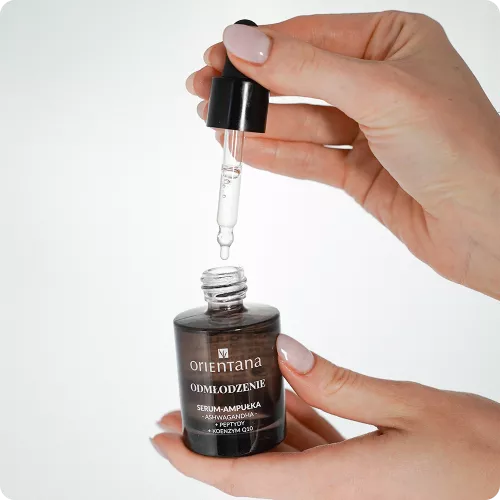
Features of peptides
The most important characteristics of peptides are structure and length.
- Structure : Peptides are made up of at least two amino acids that are joined together into a chain by a peptide bond (a bond between the carboxyl group of one amino acid and the amino group of another).
-
Length :
- Oligopeptides : short chains (usually 2-20 amino acids),
- Polypeptides : longer chains, consisting of several dozen amino acids,
- If a polypeptide chain reaches a certain length and complexity, it is called a protein.
Action of peptides
There are 4 main areas of peptide action:
-
Biological :
- Regulation of metabolic processes (e.g. insulin – a peptide hormone that controls blood glucose levels).
- Transmission of signals between cells (e.g. neuropeptides).
- Supporting the immune system.
-
Cosmetic :
- In cosmetology, peptides are used to improve the condition of the skin, supporting the synthesis of collagen and elastin, which can slow down the aging process. We can find them in peptide serums, for example.
-
Medical :
- In the treatment of diseases as drugs or diagnostic components.
-
Sports :
- Some peptides (e.g. growth hormone secretagogues) are used as supplements, although they may be banned in competitive sports.
Examples of peptides in the human body
- Insulin : regulates blood glucose levels.
- Oxytocin : The hormone responsible for uterine contractions during labor and bonding.
- Glucagon : has the opposite effect to insulin, raising blood glucose levels.
peptide what is this ingredient in cosmetics
Peptides in cosmetics are active ingredients used in skin care products that are designed to improve skin condition, slow down aging processes and support natural regeneration processes. Due to their structure, they can penetrate the skin and affect various biological mechanisms, such as collagen production or cell regeneration. They work most effectively in peptide serums.
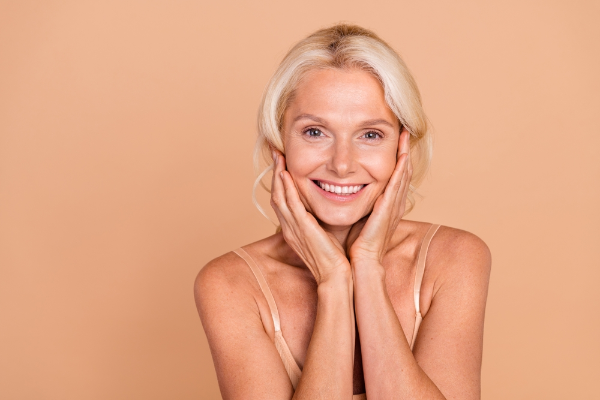
What do peptides do in cosmetics?
-
Stimulation of collagen and elastin production :
- Signal peptides send signals to skin cells to increase collagen and elastin production, improving skin firmness and elasticity.
-
Skin regeneration and repair :
- They accelerate regenerative processes in the skin, supporting the reconstruction of the hydrolipid barrier and regeneration of damaged tissues.
-
Wrinkle smoothing :
- Some peptides (e.g. those with Botox-like effects) relax facial muscles, which helps reduce the appearance of wrinkles.
-
Skin hydration :
- Peptides bind water, improving hydration and making skin smoother and softer.
-
Reduction of inflammation :
- They have anti-inflammatory properties, which help reduce irritation and redness.
-
Strengthening the skin's protective barrier :
- They protect the skin against external factors such as pollution and UV radiation.
Peptides in cosmetics
- Peptide cream and serum : Smoothes wrinkles, improves skin firmness.
- Moisturizing cosmetics : Increases skin hydration and improves its protective barrier.
- Anti-acne products : Soothe inflammation and support skin regeneration.
- Brightening preparations : Reduce discoloration and even out the color.
Benefits of Using Peptides in Cosmetics
- They work gently but effectively, so they are suitable for most skin types, including sensitive skin.
- They have a wide range of uses, from anti-aging to regeneration and hydration.
- They are well tolerated and rarely cause irritation.
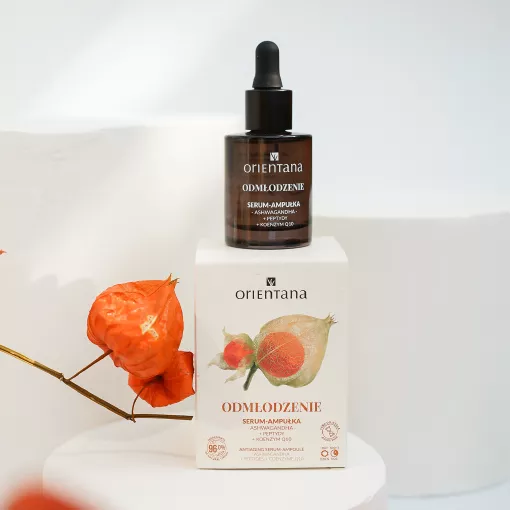
PEPTIDE SERUM - REJUVENATION AMPOULE
Peptide serums are often considered superior to creams in terms of effectiveness, especially when it comes to peptides. The differences are mainly due to their formula, the concentration of active ingredients, and the way they are absorbed by the skin.
Peptide serum REJUVENATION contains a higher concentration of peptides and coenzyme Q10 supporting their action, which makes it very effective in action. Thanks to this, peptides in the serum can more intensively stimulate the skin to produce collagen and elastin. Peptide serum REJUVENATION has signal peptides in its composition.
Peptide serum has a light, water-gel consistency that quickly penetrates the skin. This allows active ingredients to reach the deeper layers of the skin, where they are most needed.
Peptide serums are designed to target specific skin concerns, such as wrinkles and loss of firmness and elasticity. Serums can be used in conjunction with moisturizers, retinol, and other cosmetics, allowing you to create a personalized skincare routine.
Types of peptides in cosmetics
Peptide serum may contain peptides that differ in structure and function.
1. Signal peptides (contained in Orientana peptide serum):
- They send signals to skin cells to increase production of collagen, elastin or other structural proteins.
- Example : Matrixyl (palmitoyl pentapeptide).
- Action : Wrinkle reduction, improvement of skin firmness.
2. Transport peptides :
- They facilitate the transfer of active ingredients (e.g. copper) to skin cells, supporting regeneration and collagen production.
- Example : Copper tripeptide.
- Action : Skin repair, discoloration reduction.
3. Botox-like peptides :
- They have a relaxing effect on the facial muscles, reducing the visibility of facial wrinkles.
- Example : Argireline (acetyl hexapeptide-8).
- Action : Smoothing the skin, reducing wrinkles.
4. Carrier peptides :
- They facilitate the transport of other active substances, enhancing their action in the skin.
- Example : Carnosine.
- Action : Protection against oxidative stress.
5. Enzymatic peptides :
- They regulate enzymes involved in skin regeneration processes.
- Action : Improving skin texture, supporting regeneration.
How to use cosmetics with peptides?
- Apply to cleansed skin, preferably before applying heavier creams or oils.
- Avoid use simultaneously with low pH acids (e.g. glycolic acid), which may deactivate the action of peptides.
Peptides are an innovative cosmetic ingredient that continues to gain popularity due to its effectiveness and safety.
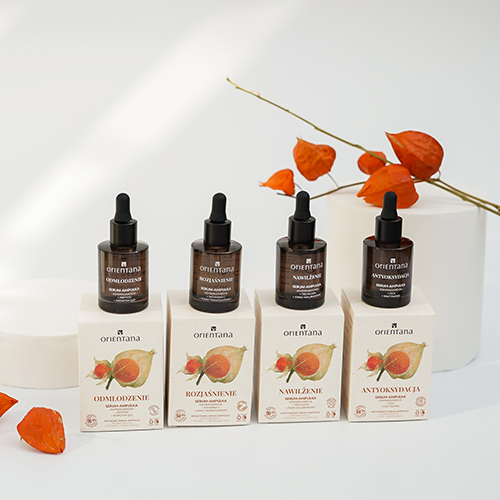
What to combine peptides with?
Peptides can be combined with various active ingredients to enhance their rejuvenating effects. The key to success is to choose ingredients that complement each other, acting synergistically to improve firmness, hydration, wrinkle reduction and skin regeneration.
The best ingredients to combine with peptides for a rejuvenating effect
-
Hyaluronic acid :
- Why? : Perfectly moisturizes the skin, and properly hydrated skin responds better to the action of peptides.
- Effect : The skin becomes firmer, more elastic and smooth.
-
Antioxidants (e.g. ashwagandha):
- Why? : They protect the skin against free radicals that accelerate the aging process.
- Effect : Peptides support skin regeneration and antioxidants protect it from further damage.
-
Retinol (vitamin A) :
- Why? : Stimulates cell renewal, improves skin texture and supports collagen production.
- How to use : Retinol can be used alternately with peptides to avoid irritation.
- Effect : Increased firmness and wrinkle reduction.
-
Ceramides :
- Why? : They support the reconstruction of the skin's hydrolipid barrier, increasing its ability to regenerate.
- Effect : The skin becomes more resistant to irritation and the peptides work more effectively.
-
Niacinamide (vitamin B3) :
- Why? : Improves the functioning of the skin's protective barrier, reduces discoloration and redness.
- Effect : The skin looks healthier and more uniform.
-
Plant extracts (e.g. aloe, green tea):
- Why? : They have a soothing and anti-inflammatory effect, supporting skin regeneration.
- Effect : Reduces irritation and enhances anti-aging effects.
-
Coenzyme Q10
- Why? : Enhances the rejuvenating effect of peptides.
- Effect : Long-term strengthening of the regenerative effect.
-
Hydrolyzed collagen :
- Why? : Supports the action of peptides by providing amino acids, which are the building blocks of the skin.
- Effect : Strengthening the skin structure and improving its elasticity.
Peptides not to combine with
Peptide serums should not be combined in care with acids with a low pH (e.g. glycolic acid, salicylic acid. They can deactivate the action of peptides. If you use acids, apply them at separate times of the day (e.g. acids in the evening, peptides in the morning). I believe that products with a high concentration of vitamin C in the form of ascorbic acid should not be in the same routine when applying peptide serums. Vitamin C in the form of ascorbic acid can change the stability of peptides. It is better to choose stable derivatives of vitamin C, e.g. ascorbyl glucoside.
How to use peptide serum
-
In the morning :
- Facial cleansing - natural foam or gel
- Skin preparation tonic
- Peptide serum.
- Face cream
-
In the evening :
- Facial cleansing - make-up removal oil, foam or gel
- Tonic
- Peptide serum.
- Night cream
Practical tips
- Consistency matters : Use products from the lightest (serums) to the heaviest (creams).
- Regularity is the key to results : Peptides work long-term, so regular use is crucial.
- Remember to protect your skin from the sun : Even the best peptides will not eliminate the damage caused by UV radiation.
By combining peptides with the right ingredients, you can achieve a comprehensive rejuvenating effect, improving the appearance of your skin and its health.


